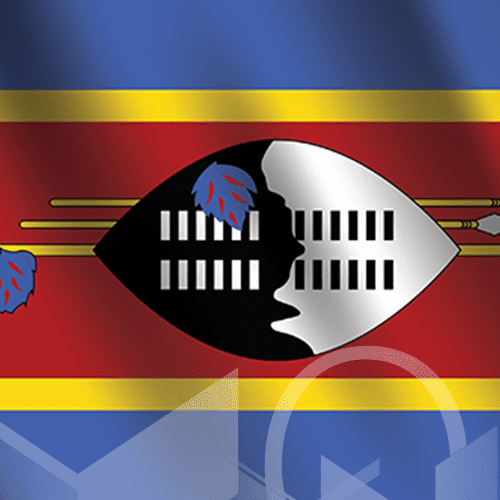
Filter
Sample Reports
Related Links
Eswatini (formerly Swaziland)
The Kingdom of Eswatini is a landlocked country in southern Africa bordering South Africa and Mozambique with a population of 1.3 million, a land mass of 17,364km² and a GDP of US$4.9bn which is expected to grow by 4.3% in 2025.
Its currency is the Swazi Lilangeni which is pegged to the South African Rand which is also legal tender in the country. The country has strong economic ties with South Africa, with over 60% of exports going to South Africa and over 80% of imports coming from South Africa.
It is a member of the South Africa Customs Union (SACU) and the Common Market for Eastern and Southern Africa (COMESA), Southern African Development Community (SADC), the African Union, Commonwealth of Nations, and the United Nations.
Historically SACU, which includes Botswana, Lesotho, Namibia, South Africa and Eswatini, was administered by South Africa through the 1910 and 1969 agreements. The customs union collected duties on local production and customs duties on members’ imports from outside SACU, and the resulting revenue was allocated to member countries in quarterly instalments utilising a revenue-sharing formula. Members form a single customs territory in which tariffs and other barriers are eliminated on substantially all the trade between them for products originating in these countries, and there is a common external tariff that applies to non-members.
Eswatini is one of the world’s last remaining absolute monarchies, and the prevailing King Mswati III rules by decree. Elections are held every five years to determine the House of Assembly and the Senate. The king appoints the prime minister from the legislature and appoints a minority of legislators to parliament.
Eswatini’s social indicators lag those of other lower middle-income countries. About 53% of the population live below the lower-middle-income poverty line of $3.65 per day (2017 PPP). The unemployment rate surged from 23% in 2016 to 35% in 2023, and job opportunities are concentrated in the informal sector. Eswatini’s economy remains one of the most unequal in the world, with a Gini coefficient of 54.6 in 2016.
Eswatini is Africa’s fourth largest sugar producer and the 25th largest producer worldwide.
Sources: Who Owns Whom sector reports, CIA Factbook, African Development Bank, World Bank, Trading Economics, African Statistical Yearbook and IMF. ?>
Company Profile
There is no data available at the moment
Sector Research
| CompanyName | Stock Exchange | Listed Date | Ticker Code | Country | Status |
|---|---|---|---|---|---|
| FIRST NATIONAL BANK OF ESWATINI LTD | Eswatini Stock Exchange | 2023-12-05 | FNBE | Eswatini | Active |
| GREYSTONE PARTNERS LTD | Eswatini Stock Exchange | 2010-11-00 | GREYSTONE | Eswatini | Active |
| INALA CAPITAL LTD | Eswatini Stock Exchange | 2019-03-18 | INALA | Eswatini | Active |
| NEDBANK ESWATINI LTD | Eswatini Stock Exchange | 1990-00-00 | NEDBANK | Eswatini | Active |
| NKONYENI PRE-CAST LTD | Eswatini Stock Exchange | 2023-11-09 | NPC | Eswatini | Active |
| ROYAL ESWATINI SUGAR CORPORATION LTD (THE) | Eswatini Stock Exchange | 1999-00-00 | RSSC | Eswatini | Active |
| SBC LTD | Eswatini Stock Exchange | SBC | Eswatini | Active | |
| SWAZI EMPOWERMENT LTD | Eswatini Stock Exchange | 2004-00-00 | SEL | Eswatini | Active |
| SWAZILAND PROPERTY INVESTMENTS LTD | Eswatini Stock Exchange | 1998-05-00 | SWAPROP | Eswatini | Active |
The Manufacture of Sugar in Eswatini
Full Report R 1 900.00(ZAR) estimated $ 119.16 (USD)*
Industry Landscape R 1 330.00(ZAR) estimated $ 83.41 (USD)*
The Manufacture of Sugar in Eswatini
Full Report R 1 900.00(ZAR) estimated $ 119.16 (USD)*
Industry Landscape R 1 330.00(ZAR) estimated $ 83.41 (USD)*


